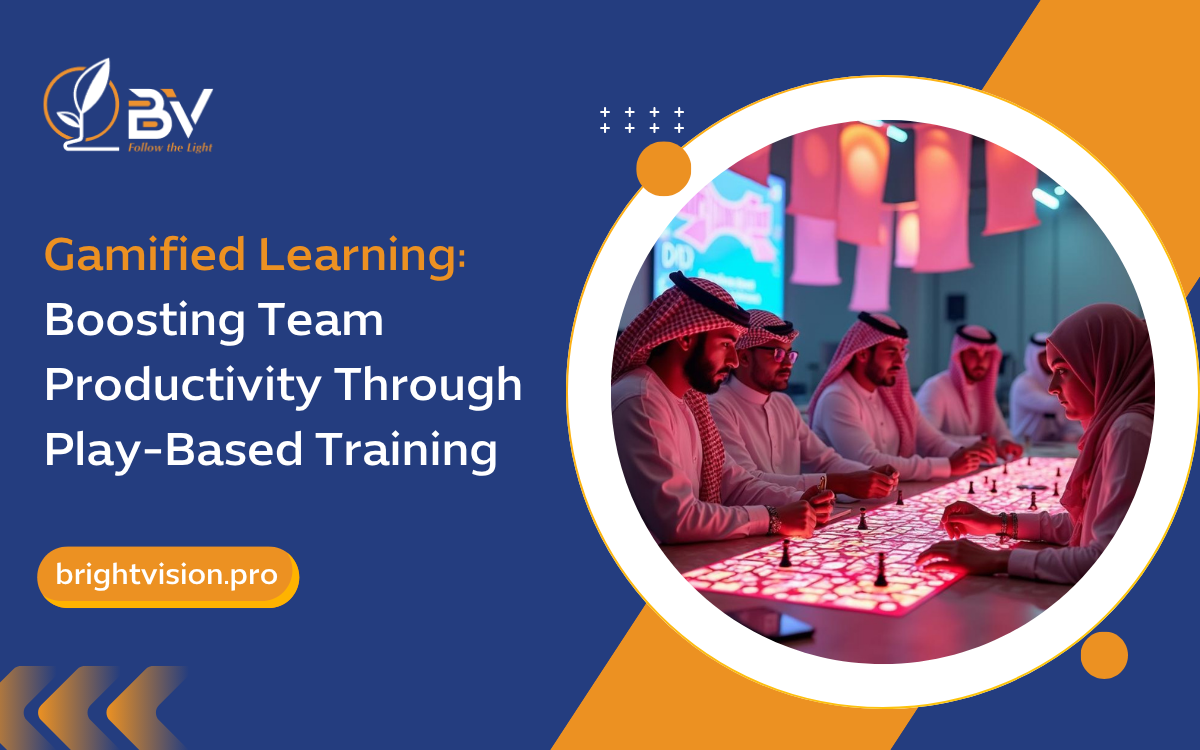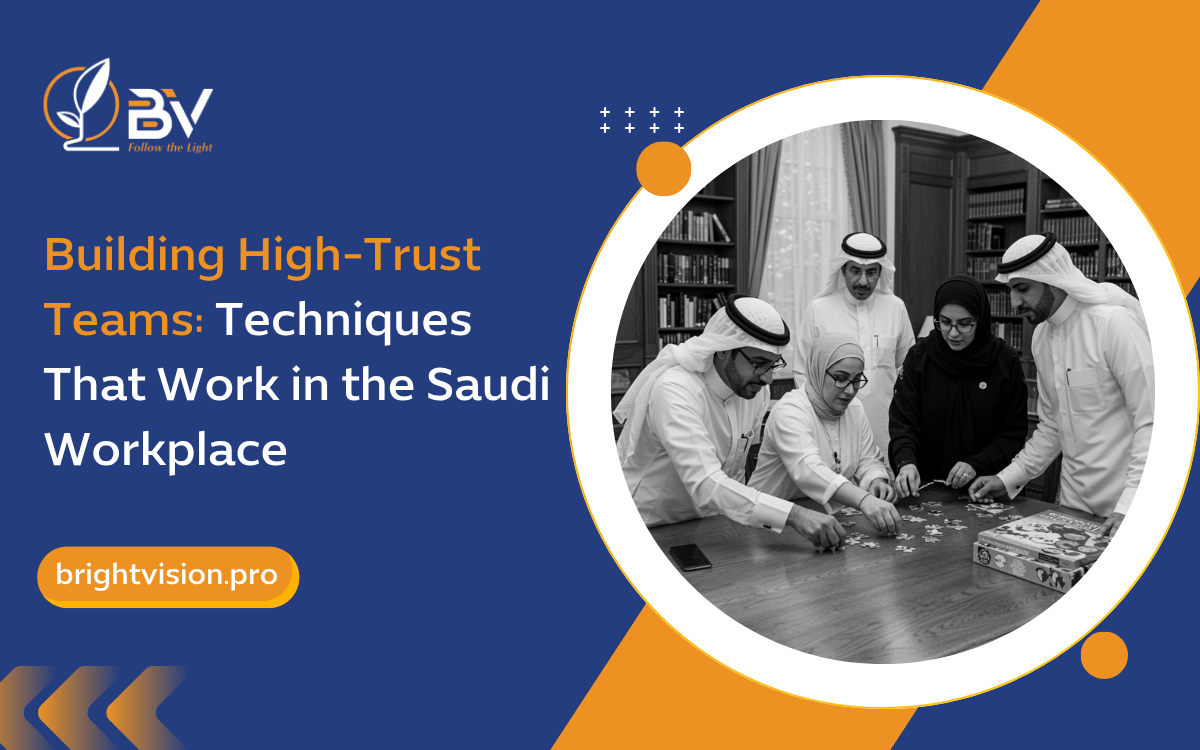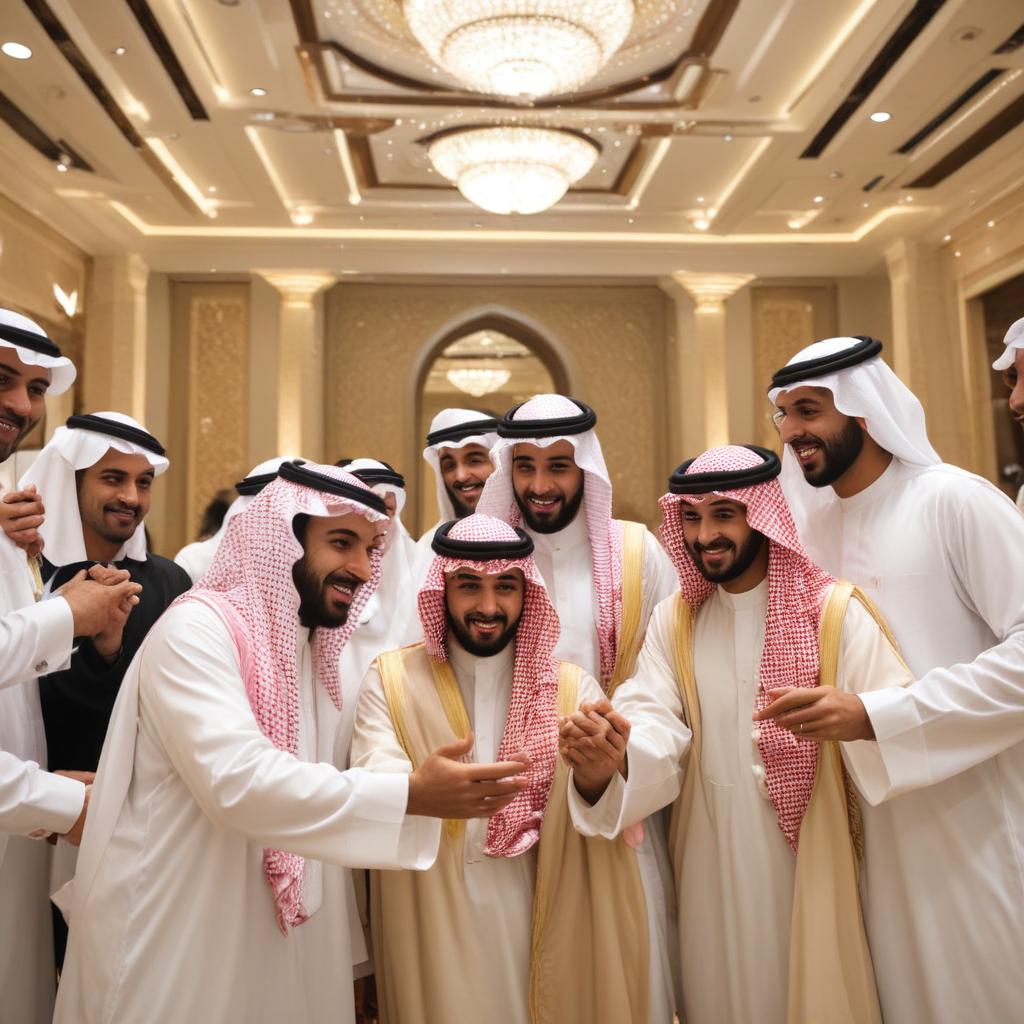Team building activities are more than just fun and games; they are a strategic investment in your organization’s success. Behind every successful corporate team building activity lies a foundation of scientific principles that drive positive change and foster high-performance teams. This blog post delves into the science behind effective team building, exploring the psychological and sociological factors that contribute to its success. Bright Vision, a leading team building company in Riyadh, Saudi Arabia, understands these scientific principles and designs programs that deliver tangible results. If you’re looking for Team Building in Riyadh or Team Building in Saudi Arabia, we can help you create science-backed, impactful experiences.
Understanding the Psychology of Team Building
Effective team building leverages several key psychological principles:
Social Identity Theory:
This theory suggests that people derive a sense of identity and belonging from their group memberships. team building activities can strengthen social identity by creating shared experiences and fostering a sense of “we-ness.”
Cognitive Dissonance:
When individuals experience conflicting beliefs or behaviors, they are motivated to reduce this dissonance. team building activities can create situations that challenge existing assumptions and encourage individuals to adopt new perspectives.
Self-Efficacy:
This refers to an individual’s belief in their ability to succeed in specific situations. team building activities can build self-efficacy by providing opportunities for individuals to overcome challenges and achieve success.
Growth Mindset:
This mindset emphasizes the belief that abilities can be developed through effort and learning. team building activities can foster a growth mindset by encouraging participants to embrace challenges and learn from their mistakes.
Emotional Intelligence:
The ability to understand and manage one’s own emotions and the emotions of others is crucial for effective teamwork. team building activities can enhance emotional intelligence by providing opportunities for participants to practice empathy, communication, and conflict resolution.
The Sociology of Team Dynamics
Team building also draws on sociological principles to understand and improve team dynamics:
Group Cohesion:
This refers to the degree to which team members are attracted to each other and motivated to stay in the group. team building activities can increase group cohesion by fostering positive interactions and shared experiences.
Social Roles:
Within any team, individuals take on specific roles that contribute to the group’s functioning. team building activities can help teams clarify roles and ensure that everyone understands their responsibilities.
Communication Patterns:
Effective communication is essential for teamwork. team building activities can improve communication patterns by providing opportunities for teams to practice active listening, clear articulation, and constructive feedback.
Conflict Resolution:
Conflict is inevitable in any team. team building activities can teach teams how to resolve conflicts constructively and maintain positive relationships.
Shared Norms and Values:
Teams develop shared norms and values that guide their behavior. team building activities can help teams establish positive norms and values that promote collaboration and success.
Key Scientific Elements of Successful Team Building Programs
Based on these psychological and sociological principles, successful team building programs incorporate the following key elements:
Clear Objectives:
Programs should have clear objectives that align with the organization’s goals. This ensures that the activities are relevant and contribute to desired outcomes.
Experiential Learning:
Activities should provide hands-on, experiential learning opportunities that allow participants to apply their knowledge and skills in real-world scenarios.
Structured Debriefing:
Facilitated debriefing sessions are crucial for processing the learning experience and applying it to the workplace.
Variety of Activities:
Programs should incorporate a variety of activities to address different aspects of team dynamics and cater to different learning styles.
Progressive Challenges:
Activities should gradually increase in complexity to challenge participants and promote continuous learning.
Positive Reinforcement:
Programs should emphasize positive reinforcement to encourage participation and build confidence.
Data-Driven Evaluation:
Programs should be evaluated using data-driven methods to measure their impact and identify areas for improvement.
How Bright Vision Applies the Science of Team Building
Bright Vision, a leading team building company in Riyadh, Saudi Arabia, applies the science of team building to design and deliver impactful programs. We:
Conduct Needs Assessments:
We work with clients to understand their specific needs and objectives.
Design Customized Programs:
We tailor our programs to address the unique challenges and opportunities of each organization.
Utilize Evidence-Based Practices:
We incorporate evidence-based practices from psychology and sociology into our program design.
Employ Experienced Facilitators:
Our experienced facilitators guide participants through activities and facilitate meaningful debriefing sessions.
Measure Program Effectiveness:
We use data-driven methods to evaluate the effectiveness of our programs and ensure that they are delivering desired results.
Types of Science-Backed Team Building Activities
Bright Vision offers a variety of science-backed corporate team building activities, including:
Problem-Solving Challenges:
These activities challenge teams to work together to solve complex problems, enhancing critical thinking and decision-making skills.
Communication Workshops:
These workshops focus on improving communication patterns and enhancing active listening skills.
Leadership Development Programs:
These programs provide opportunities for individuals to develop their leadership skills and build self-efficacy.
Conflict Resolution Training:
These training sessions teach teams how to resolve conflicts constructively and maintain positive relationships.
Team Dynamics Assessments:
These assessments provide insights into team dynamics and identify areas for improvement.
Benefits of Science-Based Team Building
Investing in science-based team building activities offers numerous benefits:
Improved Team Performance:
Enhanced communication, collaboration, and problem-solving skills lead to improved team performance.
Increased Employee Engagement:
Positive team dynamics and a sense of belonging contribute to increased employee engagement.
Reduced Turnover:
A positive and supportive work environment can reduce employee turnover.
Enhanced Innovation and Creativity:
Teams with strong communication and collaboration skills are more likely to generate innovative ideas.
Stronger Company Culture:
team building activities can reinforce company values and create a positive and cohesive company culture.
Bright Vision: Your Partner for Team Building in Saudi Arabia
Bright Vision is your trusted partner for creating science-backed, impactful team building activities in Riyadh and across Saudi Arabia. We understand the unique cultural context and design programs that deliver tangible results. If you’re looking for Team Building in Riyadh or Team Building in Saudi Arabia, we can help you create memorable experiences that strengthen your team and your brand.
Our services include:
- Customized Team Building Programs
- Experienced Facilitators
- Variety of Activities
- Focus on Results
By understanding and applying the science behind team building, organizations can create programs that deliver lasting results. Investing in science-backed team building activities is a strategic investment in your organization’s success. Contact Bright Vision today to learn more about how we can help you create impactful team building activities in Riyadh and across Saudi Arabia.







